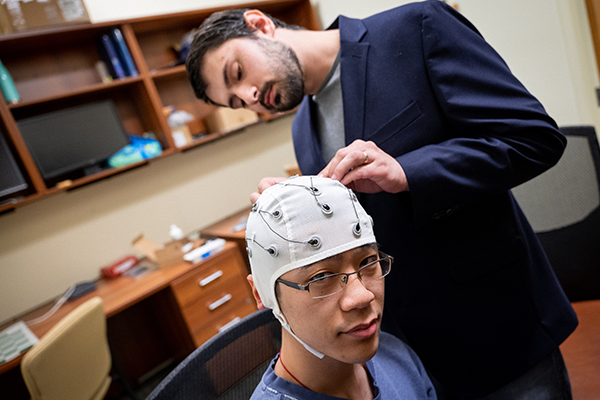Research in Braver and Ching labs could boost thinking, focus
A new NIH grant will support a project that uses computer modeling and precise electric currents to promote an active, focused state of mind

Todd Braver, professor of psychological and brain sciences, and ShiNung Ching, associate professor of electrical and systems engineering, have received a grant from the National Institutes of Health (NIH) for more than $400,000 to investigate a new way to improve thinking and focus — work that could one day help restore short-term memory in older adults and give a boost to others who struggle with memory and concentration.
The new project uses a computer model of brain activity called MINDy (Mesoscale Individualized NeuroDynamic model). Developed in a prior collaboration between the Braver and Ching labs in 2020, MINDy uses neuroimaging measures, including functional magnetic resonance imaging (fMRI) and electroencephalogram (EEG) data, to develop individual-specific estimates of brain activity. For the current project, the researchers will rely on EEG, a simple measurement of brain activity conducted through electrodes attached to the scalp. Based on that data, researchers will use different electrodes to deliver tiny electric pulses to the brain to encourage an active, productive state of mind.
With guidance from MINDy, researchers hope to individually tailor these pulses to achieve the desired results, Braver said. “By modeling a person’s brain activity, we should be able to directly customize the stimulation they need to achieve a target brain state,” Braver said. “If it works, it’s going to be a huge advance.”
Read the full story here.




